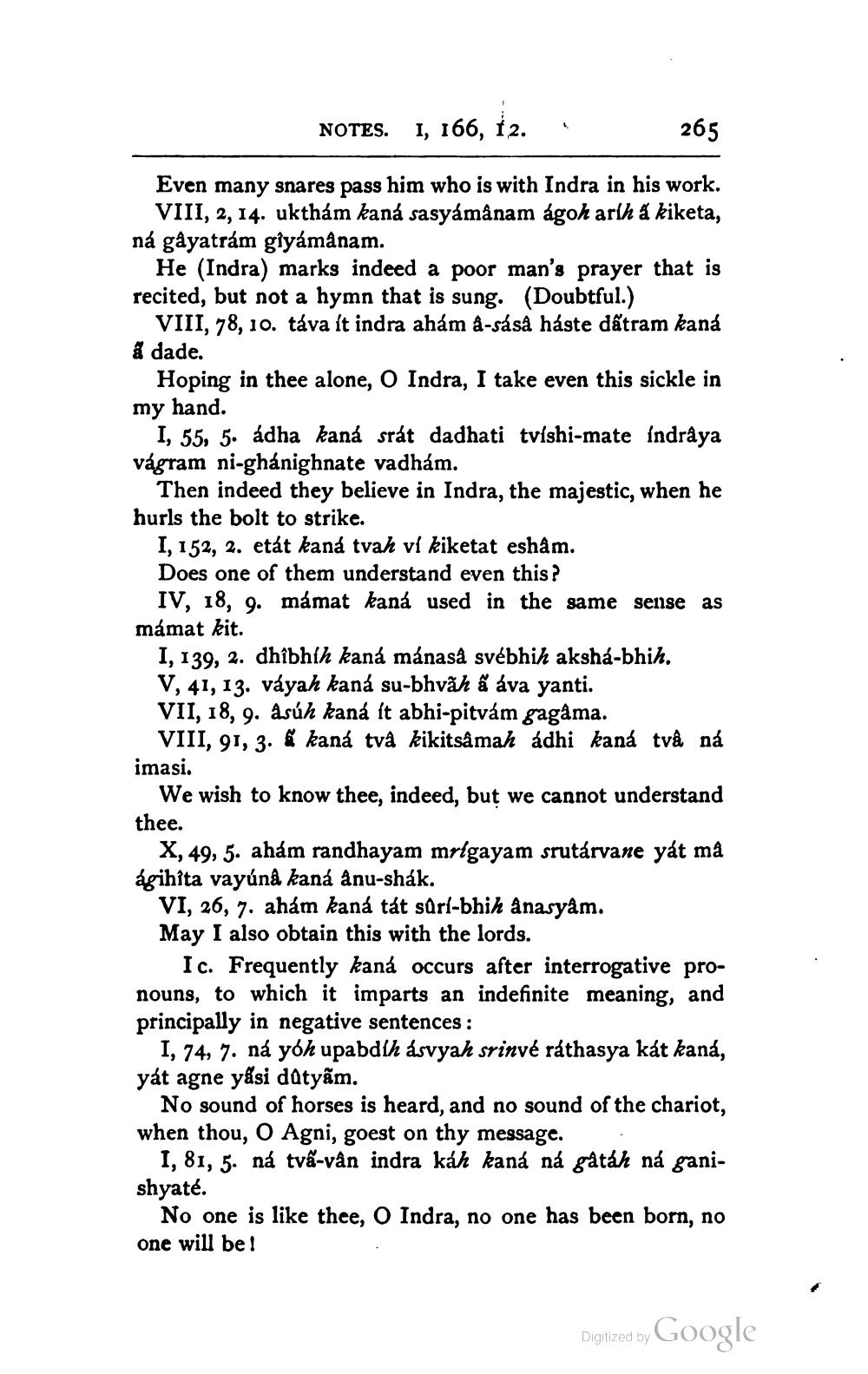________________
NOTES. 1, 166, 12.
265
Even many snares pass him who is with Indra in his work.
VIII, 2, 14. ukthám kana sasyámånam ágoh arth á kiketa, ná gâyatrám giyámānam.
He (Indra) marks indeed a poor man's prayer that is recited, but not a hymn that is sung. (Doubtful.)
VIII, 78, 10. táva ít indra ahám å-sáså háste dãtram kaná à dade.
Hoping in thee alone, O Indra, I take even this sickle in my hand.
I, 55, 5. ádha kaná srát dadhati tvishi-mate indraya vágram ni-ghánighnate vadhám.
Then indeed they believe in Indra, the majestic, when he hurls the bolt to strike.
I, 152, 2. etát kaná tvah ví kiketat eshâm. Does one of them understand even this?
IV, 18, 9. mámat kaná used in the same sense as mámat kit.
I, 139, 2. dhîbhíh kaná mánaså svébhih aksha-bhih. V, 41, 13. váyah kaná su-bhvãh ã áva yanti. VII, 18, 9. dsúh kaná It abhi-pitvám gagama.
VIII, 91, 3. á kaná två kikitsamah adhi kaná två ná imasi.
We wish to know thee, indeed, but we cannot understand thee.
X, 49, 5. ahám randhayam mrlgayam srutárvane yát må ágihîta vayúnå kaná anu-shák.
VI, 26, 7. ahám kaná tát sûrs-bhih anasyam. May I also obtain this with the lords.
Ic. Frequently kaná occurs after interrogative pronouns, to which it imparts an indefinite meaning, and principally in negative sentences :
1, 74, 7. ná yoh upabdih ásvyah srinvé ráthasya kát kaná, yát agne yasi dutyám.
No sound of horses is heard, and no sound of the chariot, when thou, O Agni, goest on thy message.
I, 81, 5. ná tvá-vân indra káh kaná ná gåtáh na ganishyaté.
No one is like thee, O Indra, no one has been born, no one will be!
Digitized by
Digitized by Google




